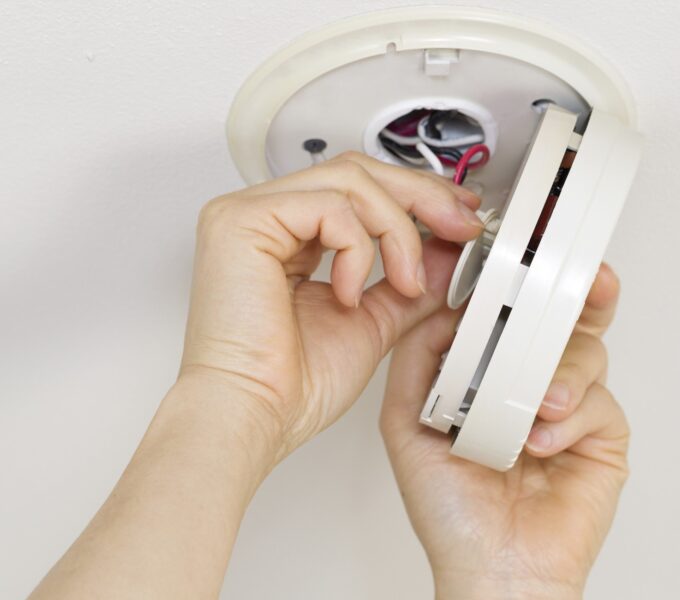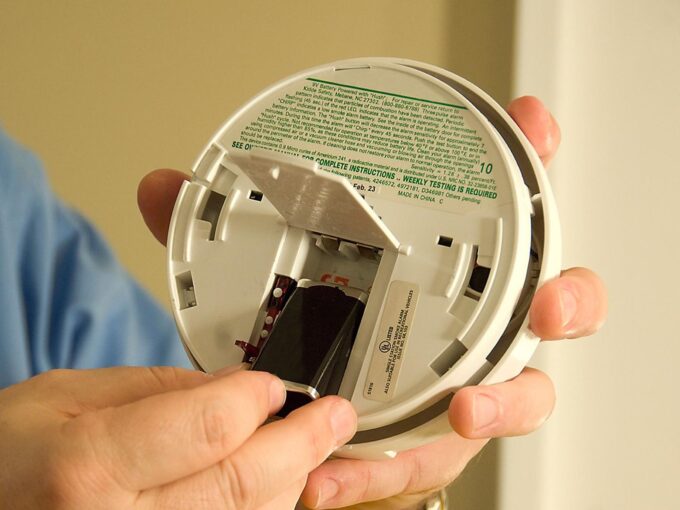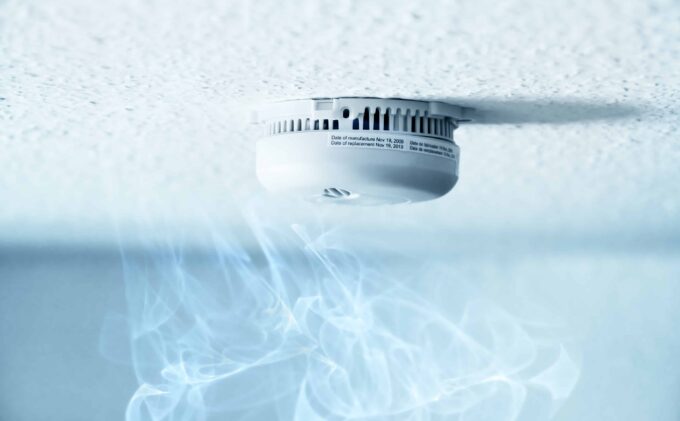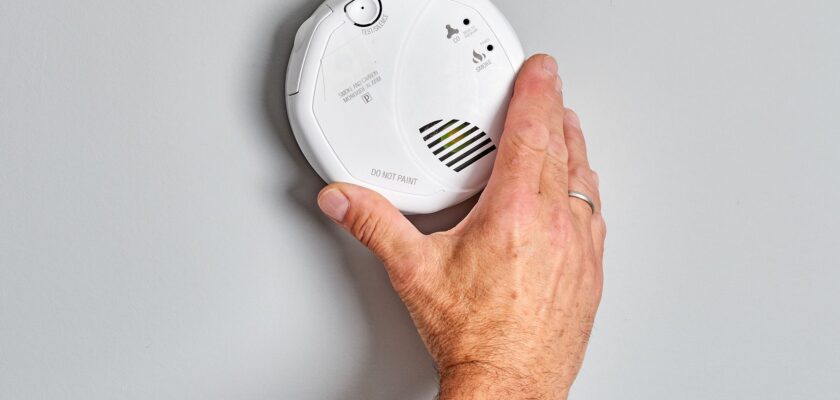Smoke detectors are essential for protecting your home and family from fire hazards. However, when it comes to choosing between hardwired and battery-powered ones, many homeowners are unsure which one is the better option. Each type of smoke detector has its advantages and disadvantages, and it ultimately depends on your personal preference and the specific needs of your home. In this article, we will take a closer look at the pros and cons of both options to help you make an informed decision for your home safety.
Hardwired Smoke Detectors

Source: justlandlords.co.uk
Hardwired smoke detectors are connected directly to your home’s electrical system and typically have a battery backup. They are usually installed by an electrician and require a certain level of expertise to install properly. Here are some of the pros and cons of hardwired smoke detectors.
Pros:
- Reliable Power Source: Hardwired smoke detectors have a reliable power source, as they are connected directly to your home’s electrical system. This means they are less likely to run out of power or fail due to a dead battery, ensuring that your home is always protected.
- Interconnectivity: They can be interconnected, meaning that when one detector detects smoke, all of the detectors in your home will sound an alarm. This is an important safety feature that can help ensure that everyone in your home is alerted to a potential fire hazard.
- Compliance: Many building codes require them in new construction and renovations. This means that if you are building a new home or renovating an existing one, you may be required by law to install hardwired smoke detectors.
Cons:
- Installation: Installing hardwired smoke detectors requires a certain level of expertise and knowledge of electrical systems. It is recommended that you hire a licensed electrician to install them to ensure they are installed correctly.
- Cost: They are typically more expensive than battery-powered smoke detectors due to the cost of installation and the required electrical work.
Battery-Powered Smoke Detectors

Source: spokesman.com
Battery-powered smoke detectors are easy to install and require no wiring, making them a popular choice for homeowners. They are powered by batteries, which need to be replaced periodically to ensure that the smoke detector is functioning correctly. Here are some of the pros and cons of battery-powered smoke detectors.
Pros:
- Easy Installation: They are easy to install, as they require no wiring or electrical work. They can be installed in just a few minutes by anyone with basic handyman skills.
- Cost: They are typically less expensive than hardwired smoke detectors, as they do not require any electrical work or installation by a licensed electrician.
- Portability: They can be easily moved from room to room, making them a great option for renters or homeowners who frequently move.
Cons:
- Battery Replacement: Battery-powered smoke detectors require periodic battery replacement to ensure they are functioning correctly. If the batteries are not replaced regularly, the smoke detector may not work when needed, putting your home safety at risk.
- Power Failure: In the event of a power failure, they may not work. While most battery-powered smoke detectors have a backup battery, it is important to ensure that the battery is working correctly and has been replaced recently.
Which Is Better for Home Safety?

Source: waveelectriccompany.com
Both hardwired and battery-powered smoke detectors have their advantages and disadvantages, and the best option for your home safety ultimately depends on your personal preferences and the specific needs of your home. Here are some points to consider when making your decision:
- Cost: If cost is a concern, battery-powered smoke detectors may be the better option, as they are typically less expensive than hardwired ones.
- Electrical Expertise: If you are comfortable with electrical work or know a licensed electrician, hardwired smoke detectors may be the better option for you. However, if you are not comfortable with electrical work, battery-powered smoke detectors may be the safer choice.
- Interconnectivity: If you want all of the smoke detectors in your home to be interconnected, hardwired smoke detectors may be the better option. However, if interconnectivity is not a priority, battery-powered smoke detectors can still provide adequate protection.
- Battery Replacement: If you are forgetful about replacing batteries, hardwired smoke detectors may be the better option, as they do not require battery replacement. However, if you are diligent about replacing batteries, battery-powered smoke detectors can provide reliable protection.
- Home Safety Point: Regardless of which type of smoke detector you choose, it is important to ensure that they are installed correctly and functioning properly. Test your smoke detectors regularly to ensure that the batteries are working and the alarm sounds as expected. Additionally, it is important to replace smoke detectors every 10 years, as they may become less effective over time.
Finally, it’s important to note that smoke detectors should be just one part of your home’s overall fire safety plan. You should also have a fire extinguisher readily available in case of a small fire, as well as a clear evacuation plan in case of a larger fire. Make sure everyone in your household knows what to do in case of a fire and practice your evacuation plan regularly. Additionally, consider installing carbon monoxide detectors in your home to detect any potential carbon monoxide hazards. By taking these steps, you can help ensure the safety and protection of your home and family.
All in All

Source: handymanhub.com
In conclusion, both hardwired and battery-powered smoke detectors can provide adequate protection for your home. It ultimately depends on your personal preference and the specific needs of your home. Consider the pros and cons of each type of smoke detector before making your decision, and always ensure that your smoke detectors are installed correctly and functioning properly to keep your home and family safe from fire hazards. Remember, home safety should always be a top priority.

